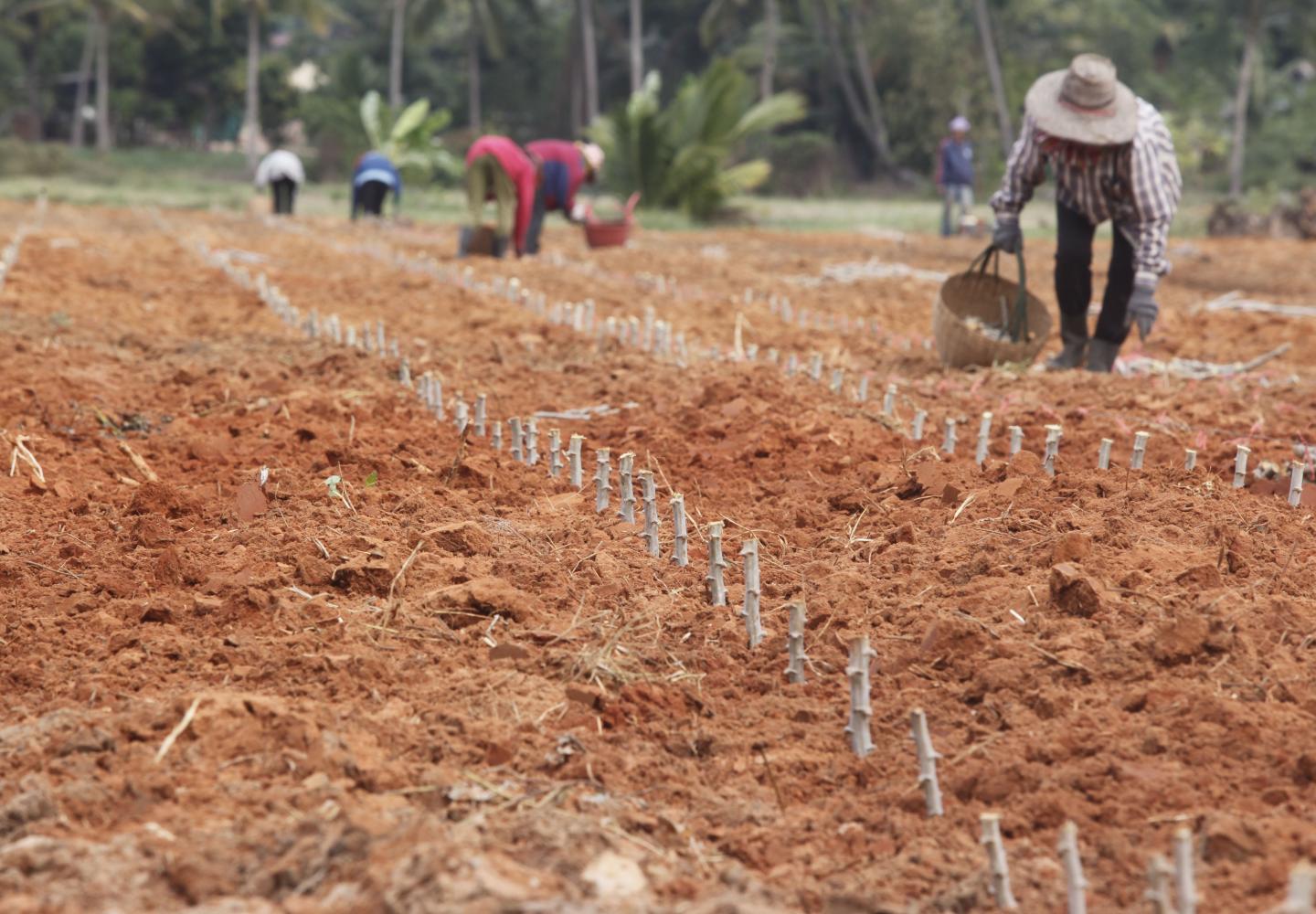
Tapioca business operators have called on the government to speed up tackling the cassava mosaic disease that has ravaged the farmers' produce since 2018.
Boonchai Srichaiyongpanich, president of the Thai Tapioca Trade Association, said the tapioca industry including exports would be undermined if the government does not come up with serious action to address the mosaic disease.
"To show it is serious about this matter, the government should establish a specific centre to handle tapioca disease in the same way the Centre for Covid-19 Situation Administration handles the deadly virus crisis," said Mr Boonchai.
The mosaic disease has spread to various key production bases in Thailand, such as Nakhon Ratchasima, Sa Kaeo, Buri Ram, Surin, Si Sa Ket, Prachin Buri and Chachoengsao.
He said without effective preventive measures and decisive enforcement, the disease now affects 70,000 rai in 18 provinces, with about 8 million rai in 50 provinces still to be surveyed concerning the disease's impact.
There are a total of 8 million rai of tapioca farmland in 50 provinces, with more than 600,000 families engaged in tapioca farming.
He predicted Thailand's overall tapioca production for the 2020/2021 crop year would be below 20 million tonnes, compared with 20-22 million tonnes in the 2019/20 season.
Normally Thailand's tapioca production stands at 28-30 million tonnes, with demand amounting to 40 million tonnes a year.
Last year Thailand saw tapioca product exports drop both in value and volume, with the value down by 16.4% to US$2.6 billion and volume down 20.4% to 6.6 million tonnes.
China is the biggest export market followed by Indonesia, Taiwan and Japan.
The association expects exports to drop below 2.4 million tonnes this year from 2.4 million tonnes, 3 million, 4 million and 6 million the previous four years, respectively.
The price of fresh cassava root with 25% starch is now quoted at 1.95-2.35 baht per kilogramme, lower than the state price guarantee of 2.50 baht per kg.
The cabinet on Nov 12 approved 9.6 billion baht for the tapioca price guarantee scheme for the 2019-20 harvest season.
The price guarantee is set at 2.50 baht per kg, limited to 100 tonnes per family.
Keerati Rushchano, director-general of the Foreign Trade Department, said in February tapioca prices are expected to rise because of widespread drought, which cut production in certain areas in the country by 30%, with lower production in neighbouring countries also anticipated because of the drought and the cassava mosaic disease.
Authorities have been monitoring tapioca prices and found they rose gradually because of widespread drought, he said. Domestic demand also increased thanks to the government's policy promoting gasohol E20.
E20 is 20% ethanol blended with 80% unleaded petrol.